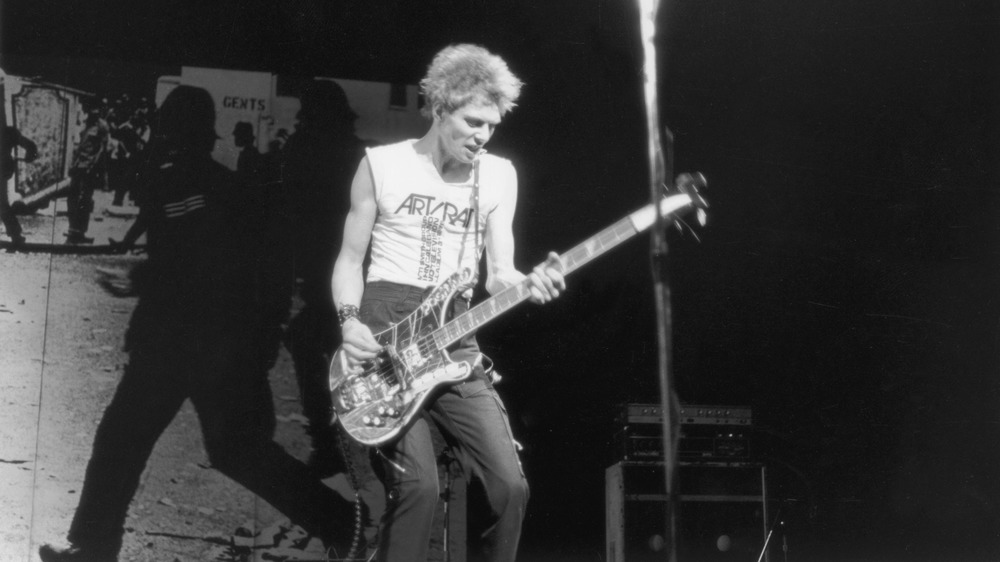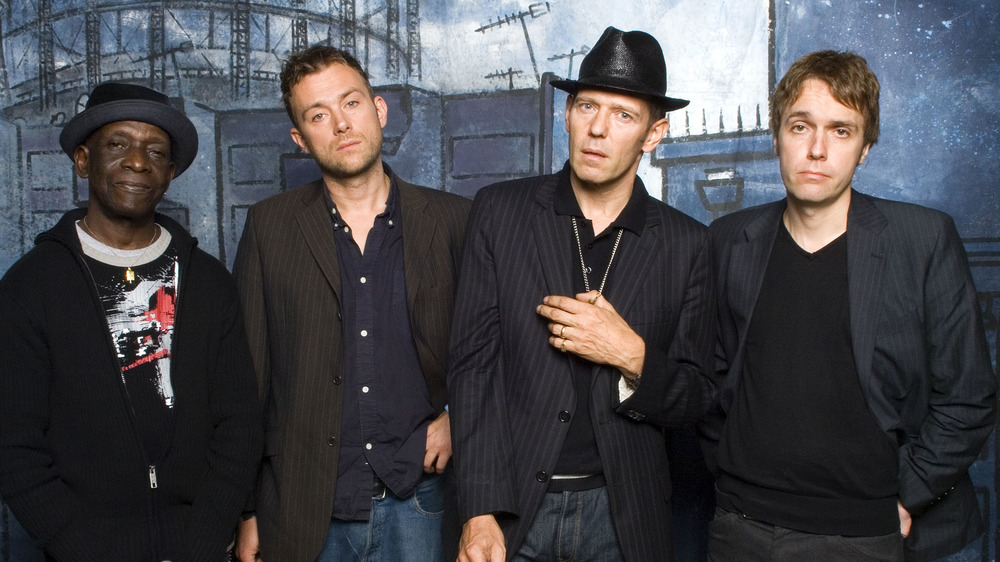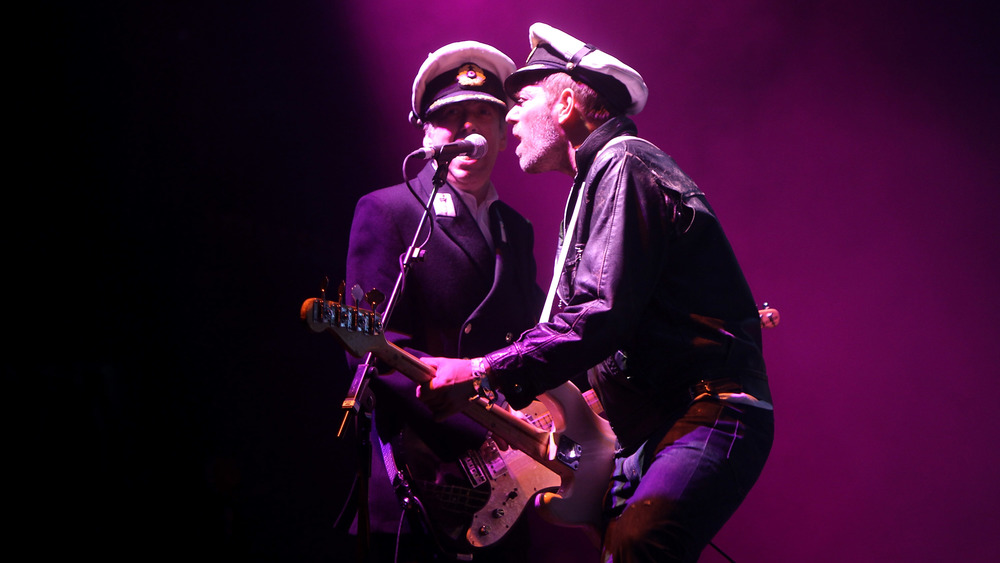Whatever Happened To Paul Simonon From The Clash?
There is arguably no more iconic bassist in the vast genre of punk music than Paul Simonon. Not only did he perform bass duties on the majority of the songs recorded by The Clash, of whom he was a member from 1976 until their breakup a decade later, he was also the cover star on their most famous album, 1979's London Calling. Yes, that's him, smashing his Fender during a gig in New York performed the year of the album's release, according to the BBC.
As well as the gnarly bass performances with The Clash that pushed the boundaries of punk into the unexplored territory of ska, reggae, and other fusions of niche genres, Simonon was known for his intimidating stage presence and undoubtedly striking punk aesthetic. Simonon also co-wrote some classic Clash songs, including "Straight to Hell," which would go on to be heavily sampled on MIA's "Paper Planes," and provided lead vocals on the fan-favorite "Guns of Brixton," an atmospheric album cut from London Calling. Per The Rake: "His contribution to The Clash was as vital as the passion and polemic of Joe Strummer, the flash and guile of guitarist Mick Jones, and the prodigious musicality of drummer Topper Headon. Without Simonon, The Clash would still have been great, but with him they became icons."
After The Clash split, Simonon went on to form his own band, Havana 3am, who released a self-titled album in 1991, before Simonon seemingly disappeared from the music industry.
Paul Simonon's joined The Good, the bad & the Queen
As if Simonon's reputation was ever in doubt, when he finally returned to the limelight in 2006, it was in illustrious company. He was announced as the bassist in a new project titled The Good, the Bad & the Queen, an art-rock supergroup formed by Blur frontman and Gorillaz mastermind Damon Albarn, which also featured Simon Tong of The Verve and the veteran percussionist Tony Allen, best known as the longtime drummer of the Nigerian Afrobeat genius Fela Kuti. If that wasn't enough to get music nerds excited, the group had also recruited the superstar producer of the moment, per The Guardian: Danger Mouse, fresh from international success as part of Gnarls Barkley.
The group's self-titled debut album gained almost universal critical acclaim — with The Observer eventually naming it the best album of the year — and the group toured extensively. Albarn, however, claimed not long after that the group was "permanently finished" in 2007, although they did reunite for a further concert in 2008 as headliners at the Love Music Hate Racism festival in London's Victoria Park, according to NME.
Fans of the band took Albarn at his word, and for years, The Good, the Bad & the Queen was left as a pleasing footnote in the history of British alternative music. However, the group re-emerged in 2018, releasing the well-received follow-up, Merrie Land.
Working with Gorillaz and Simonon's activism
The Good, the Bad & the Queen wasn't the only collaboration between Paul Simonon and Damon Albarn. The former Clash bassist also joined Albarn as part of Gorillaz, playing on the title track of the 2010 album Plastic Beach. The song was especially notable for whom Albarn paired Simonon with: the guitarist Mick Jones, Simonon's old bandmate from The Clash.
Mick Jones recounted the experience of reuniting with Simonon on a record after a break of almost three decades. Per The Guardian: "It's a few years since Paul and I last played together and that was at a wedding. It was a nice experience to look over my shoulder and see him ... We didn't argue as much as we used to. We were wrapped up on our track in a day, no nonsense, and then went down the pub for a pint." As short as the studio sessions may have been, the pair's involvement with Gorillaz was to last much longer, with Simonon and Jones joining Albarn for the group's festival tours later that year, including a headline spot at England's prestigious Glastonbury Festival, reports the BBC.
The environmental themes of Plastic Beach happen to reflect a big part of Paul Simonon's personal life. The veteran bassist is also a climate activist; according to Pitchfork, Simonon was arrested after "occupying an oil rig" as a member of Greenpeace.
How punk can one man get?


